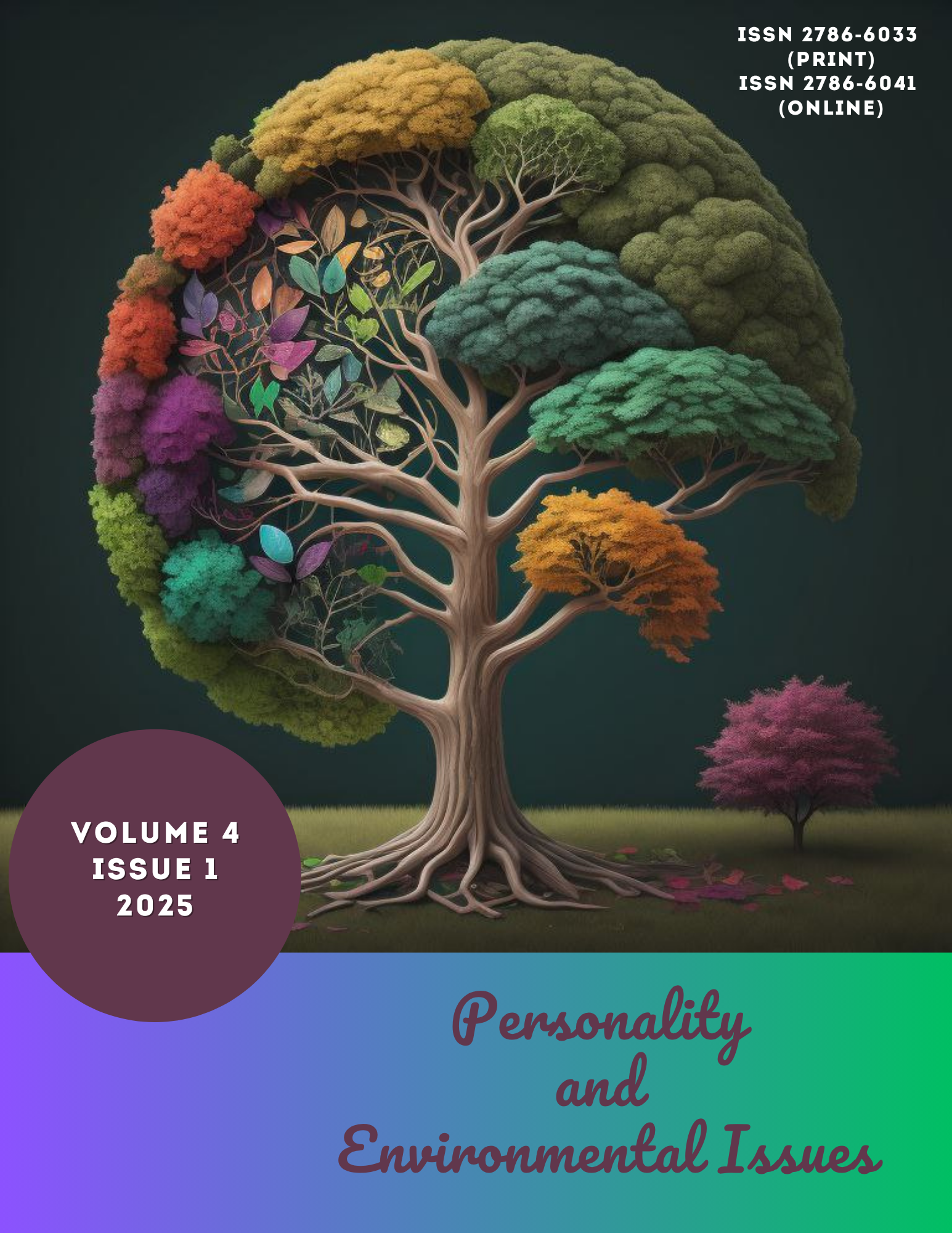Abstract
The article presents a theoretical and empirical study of the psychological determinants of interpersonal trust in adolescents. The relevance of the study is due to the complexity and ambiguity of the processes of socialization of youth in modern society, which is characterized by rapid changes, information overload, high levels of uncertainty and psychological pressure. In the face of such challenges, the study of individual strategies for coping with stress becomes particularly important, particularly during adolescence, when basic character traits are formed, the foundations of future interpersonal relationships are laid, and mechanisms of self-regulation and self-support are developed. The aim of the article is to identify the psychological determinants of interpersonal trust in adolescents. The theoretical part of the work analyzes modern approaches to defining the concept of "coping behavior", the classification of coping strategies (problem-oriented, emotional-oriented, maladaptive, etc.), and also reveals the essence of interpersonal trust as a psychological construct that affects the nature of social interaction, emotional comfort, and personal stability. Empirical research has shown that individuals with a high level of interpersonal trust are more likely to use adaptive coping strategies: constructive thinking, seeking support, planning actions, and positive reappraisal of situations. In contrast, young men with low levels of interpersonal trust are prone to problem avoidance, emotional isolation, self-blame, and passive acceptance. The results suggest that interpersonal trust is an important predictor of effective adaptation to stressful influences and plays a key role in the formation of constructive coping behavior. The presence of stable, emotionally supportive interpersonal relationships increases the internal resources of the individual, contributes to the development of self-confidence and the formation of a positive self-concept. At the same time, a lack of trust, emotional closure, and a tendency toward social isolation significantly complicate self-regulation processes, reduce psychological resilience, and can lead to the development of anxiety or depression..
The psychological determinants of interpersonal trust in adolescents are determined by a combination of individual characteristics of the emotional-volitional sphere, the level of self-regulation, self-esteem, as well as dominant coping strategies. According to the results of the study, the development of interpersonal trust is facilitated by the presence of constructive coping strategies, such as positive reappraisal, problem-solving planning, and seeking social support. Individuals with high levels of interpersonal trust demonstrate a higher ability for emotional self-regulation, openness in communication, and greater confidence in themselves and their surroundings. At the same time, young people with low levels of trust tend to have a predominance of unique or maladaptive coping strategies, which indicates the need for psychological support and the development of emotional intelligence.
References
Bobro O. (2021). On the problem of determining stress resistance in adolescents." Young scientist.С. 189-192.URL: https://molodyivchenyi.ua/index.php/journal/article/view/446
Kokun O.M., Dubchak G. (2016) Peculiarities of manifestation of stress resistance of future specialists of socio-economic professions. [Electronic resource]. Social and Human Sciences. Polish-Ukrainian scientific journal. (11).№ 03. URL: http://sp-iences.io.ua/s2573969/kokun_oleg_dubchak_halyna_2016
Kolomiiets L. I., Shulga G. B., Lebed I. B. (2023) Psychological features and individual psychological factors of self-confidence: Innovative projects and programs in psychology, pedagogy and education : Scientific monograph. Riga, Latvia : «Baltija Publishing». 592 p. Режим доступу: http://baltijapublishing.lv/omp/index.php/bp/catalog/book/295
Pokhlestova O.Yu. (2020). Coping as a function of personality stress resistance. Electronic resource:https://core.ac.uk/download/pdf/288294161.pdf
Voloshok O. (2021). Behavioral manifestations of coping strategies in adolescents." Young Scientist. 146-151. URL:https://molodyivchenyi.ua/index.php/journal/article/view/171
Zhokha S.P. (2022) Coping strategies of the individual as a means of emotional regulation. Collection of articles of the VIII All-Ukrainian scientific and practical conference Scientific search of students of the 21st century. Modern problems and trends in the development of the humanitarian and socio-economic sciences (on the occasion of World Science Day on November 17, 2022). pp.201-204. Electronic resource:http://idgu.edu.ua/wpcontent/uploads/2022/12/17.11.22.pdf

This work is licensed under a Creative Commons Attribution 4.0 International License.
Copyright (c) 2025 Галина Шульга, Аліна Ващенко





